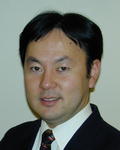Dr. Shibani Sharon Mukerji M.D., PH.D.
Neurologist | Neurology
55 Fruit St. Wang Building 7th Floor Department Of Neruol Boston MA, 02114About
Dr. Shibani Mukerji is a distinguished Neurologist in Boston, MA. Dr. Mukerji specializes in diagnosing, treating, and managing disorders of the brain and nervous system. With expertise in handling complex conditions like epilepsy, multiple sclerosis, and migraines, Dr. Mukerji employs advanced techniques and personalized treatment plans to improve patient outcomes. As a neurologist, Dr. Mukerji is committed to staying abreast of the latest developments in neurological research and therapies.
Provider Details
Expert Publications
Data provided by the National Library of Medicine- Delayed activin A administration attenuates tissue death after transient focal cerebral ischemia and is associated with decreased stress-responsive kinase activation.
- Eastern Equine Encephalitis Treated With Intravenous Immunoglobulins.
- Lipid Profiles and APOE4 Allele Impact Midlife Cognitive Decline in HIV-Infected Men on Antiretroviral Therapy.
- Marijuana Use Impacts Midlife Cardiovascular Events in HIV-Infected Men.
- Fatal Eastern Equine Encephalitis in a Patient on Maintenance Rituximab: A Case Report.
- Winged Scapula Secondary to Neuroborreliosis.
- Rapid detection of Powassan virus in a patient with encephalitis by metagenomic sequencing.
Dr. Shibani Sharon Mukerji M.D., PH.D.'s Practice location
Practice At 55 Fruit St. Wang Building 7th Floor Department Of Neruology Massachusetts General Hospital
55 Fruit St. Wang Building 7th Floor Department Of Neruol -Boston, MA 02114Get Direction
Dr. Shibani Sharon Mukerji M.D., PH.D.'s reviews
Write ReviewPatient Experience with Dr. Mukerji
Recommended Articles
- Epilepsy and Seizure Medicines
There are various medications that can help prevent or cease seizures. These drugs are called anti-seizure drugs or anti-epileptic drugs (AEDs). The use of these drugs is the most common technique in treating epilepsy. In fact, anti-epileptic drugs are the first line of treatment for epilepsy. These...
- Telling a Prospective Partner about MS
Discussing your multiple sclerosis (MS) can be very difficult even when talking with a trusted and known figure in your life. As something that can make you feel very vulnerable, discussing your MS with a prospective partner can be even more difficult since you are actively trying to gain their...
- The Brain and Fibromyalgia
It makes a lot of sense when it is said that the brain works differently in people who live with fibromyalgia. Fibromyalgia is a condition where the people who have it feel pain in different parts of the body, especially in the neck, shoulders, back, hips, arms and legs. And these points feel pain...
- Multiple Sclerosis Treatments Are Becoming More Effective, but Are Underfunded
Multiple sclerosis is considered a relatively rare disease, but a recent MS guideline published by the National Institute for Health and Care Excellence stated that with more than 400,000 cases in the US alone, MS has become the leading cause of physical disability in working age adults.Although...
- Sleep Apnea Linked to Death of Carrie Fisher and Other Little Known Facts About the Condition
Everyone suddenly hears about the death of Princess Leia, Carrie Fisher. The media immediately starts to investigate the possible causes of celebrity deaths and does not always give us clear answers. Months later, the real causes of death are shown to audiences through press conferences where family...
- In Plain Sight: Vision Changes Linked to Parkinson’s Disease
Parkinson’s disease is a chronic, progressive movement disorder that affects the nervous system. It is characterized by gradual death and breakdown of nerve cells in the brain resulting in the decreased production of a chemical messenger called dopamine. Reduced dopamine levels cause abnormal...
Nearby Providers
- Dr. Masanori Takeoka MD333 Longwood Avenue Boston Massachusetts 02115
- Dr. Agnes Virga M. D.133 Old Rd To 9 Acre Cor Concord MA 01742
- Dr. Linda Buchwald MD300 MOUNT AUBURN ST CAMBRIDGE MA 02138
- Dr. Syed T. Ali MD65 Walnut Street Wellesley Massachusetts 2481
- Dr. Eduardo Garcia M.D.2000 Washington St Newton Lower Falls MA 02462
- Dr. Carmen Rosa Fortuno roman M.D.1 Boston Medical Ctr Pl Boston MA 02118
Nearest Hospitals
MASSACHUSETTS EYE AND EAR INFIRMARYl
243 CHARLES STREET BOSTON MA 2114SHRINERS' HOSPITAL FOR CHILDREN - BOSTON, THEl
51 BLOSSOM STREET BOSTON MA 2114TUFTS MEDICAL CENTERl
800 WASHINGTON STREET BOSTON MA 2111








